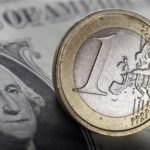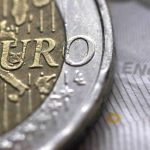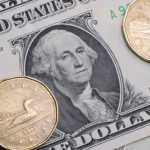The euro rebounded from the weakest level in a month against the US dollar after preliminary data showed German consumer price inflation slowed less in March than some analysts expected and after consumer confidence in the US rose less than expected this month.
EUR/USD touched a session low at 1.3705 at 09:00 GMT, after which the pair erased daily losses to trade at 1.3758 at 14:49 GMT, adding 0.12% for the day. Support was likely to be found at February 28th low, 1.3694, while resistance was to be met at March 27th high, 1.3728.
A report by the German Federal Statistical Office revealed today that the nations CPI rose by 0.3% in March, following a 0.5% gain in the previous month. On year-over-year basis, consumer price inflation rose at a 1% annualized rate this month after a 1.2% increase in February.
“Investors were looking for an even cooler reading of German inflation, and that’s why the euro benefited in a little bit of a relief rally,” Omer Eisner, chief market analyst in Washington at Commonwealth Foreign Exchange Inc., a currency brokerage, said in a Bloomberg telephone interview.
Earlier in the trading day, the euro weakened to a one-month low against the US dollar as inflation slowed in three German states and prices unexpectedly declined in Spain, reinforcing speculation the ECB may signal additional monetary stimulus next week, to bolster the economic recovery.
Yesterday, ECB Governing Council member Luis Maria Linde reiterated the words of few of her colleagues, saying central bank’s policy makers haven’t ruled out introducing further stimulus to spur economic growth in the euro area as they take the risk of deflation very seriously.
The governor of the Bundesbank and member of the ECB Governing Council, Jens Weidmann commented on March 25, the ECB may use negative interest rates to counter further appreciation of the 18-nation common currency and added that policy makers have not ruled out introducing new stimulus to fight against deflation. Stimulus programs tend to weaken a currency.
ECB policy makers, who lowered the main interest rate to a record-low 0.25% in November, are set to reconvene on April 3rd.
The euro has lost 1.3 percent in the past three months, the worst performer after the Canadian dollar, of 10 developed-nation currencies tracked by Bloomberg Correlation-Weighted Indexes, while the dollar has dropped 1.2 percent.
Meanwhile, greenbacks demand was pressured after Thomson Reuters in cooperation with the University of Michigan reported the final reading of their index, a gauge of US consumer confidence, which came in at 80.0, below analysts expectations of an increase to 80.5, but slightly up from a preliminary reading of 79.9.
However, data showed earlier that consumer spending in the US rose in February by the most in three months as incomes increased, adding to evidence the economy is gaining momentum after the unusually harsh winter.
Consumer spending, which accounts for almost 70% of the American economy, rose 0.3% last month, in line with analysts’ estimates and after a 0.2% increase in the previous month that was smaller than previously reported. Incomes also advanced 0.3% in February, in line with analysts’ expectations and matching January’s gain, data by the US Commerce Department showed today.
The US citizens were trying to shrug off the effects of the inclement weather as they rushed out to shop, supported by a labor market that was also gaining traction.
Today’s data also revealed that core price, excluding the volatile food and fuel items, inched up 0.1% last month and were up 1.1% from the previous year, the same as in January and in line with analysts’ estimates.
Elsewhere, AUD/USD hit a session high at 0.9295 at 02:00 GMT, after which the pair erased advances to trade at 0.9244 at 13:15 GMT, losing 0.15% for the day. Support was likely to be found at March 27th low, 0.9216, while resistance was to be met at November 21st high, 0.9334.





